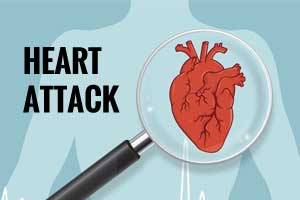- Home
- Editorial
- News
- Practice Guidelines
- Anesthesiology Guidelines
- Cancer Guidelines
- Cardiac Sciences Guidelines
- Critical Care Guidelines
- Dentistry Guidelines
- Dermatology Guidelines
- Diabetes and Endo Guidelines
- Diagnostics Guidelines
- ENT Guidelines
- Featured Practice Guidelines
- Gastroenterology Guidelines
- Geriatrics Guidelines
- Medicine Guidelines
- Nephrology Guidelines
- Neurosciences Guidelines
- Obs and Gynae Guidelines
- Ophthalmology Guidelines
- Orthopaedics Guidelines
- Paediatrics Guidelines
- Psychiatry Guidelines
- Pulmonology Guidelines
- Radiology Guidelines
- Surgery Guidelines
- Urology Guidelines
Omega 3 fatty acid prescription pill lowers heart attack risk by 30%

Prescription omega 3 fatty acid pill lowers heart attack risk in those already on statins by another 30%.
Pure and stable form of omega-3 fatty acid Icosapent ethyl provides a 30 percent relative risk reduction in total (first and subsequent) cardiovascular events like heart attack, stroke,cardiac arrest and sudden cardiac death,according to a new clinical trial.The research findings are published simultaneously in The Journal of the American College of Cardiology.
Dr Deepak L. Bhatt, MD, MPH, executive director of Interventional Cardiovascular Programs at Brigham and Women's Hospital and professor of medicine at Harvard Medical School, presented results that extend and expand the scope of the projected protective effects of icosapent ethyl at a late breaking Clinical Trial at the American College of Cardiology's 68th Annual Scientific Session.
Icosapent ethyl is a pure and stable prescription form of the omega-3 acid known as EPA ,a fat found in fish oil.
It is available as a prescription drug, called Vascepa, which is not to be confused with over-the-counter dietary omega-3 (often fish oil) supplements. Such supplements typically contain far lower doses of the critical omega-3 fatty acid called EPA and have not undergone a rigorous safety and effectiveness review by the U.S. Food and Drug Administration.
Since 2012, the FDA has approved Vascepa (icosapent ethyl) for patients whose triglyceride fat levels exceed 500 milligrams per deciliter of blood.
This is an impressive degree of risk reduction," said Bhatt. "From a patient's perspective -- and from my perspective as a person's clinician -- we care about repeat events and the risk of surviving a first stroke or heart attack only to go on to have a subsequent, potentially fatal event. The degree of benefit that this analysis reveals is quite large, especially considering that this is an additional layer of benefit on top of what statins and other therapies have already provided."
The Reduction of Cardiovascular Events with Icosapent Ethyl-Intervention Trial (REDUCE-IT), sponsored by Amarin, included more than 8,000 patients with well-controlled LDL-cholesterol who were taking statins to prevent a first or subsequent cardiovascular event. Patients in the study had triglyceride levels that were at least borderline high (135 mg/dL) and other cardiovascular risk factors. Approximately 70 percent of patients in the study had established atherosclerosis and the rest had diabetes plus at least one other cardiovascular risk factor. Patients were randomized to receive either 2 grams of icosapent ethyl (Vascepa capsules, manufactured by Amarin) twice daily (4 grams per day of this prescription therapy), or a placebo, and were followed for an average of approximately five years.
For the current analysis, the primary outcome was total cardiovascular events, consisting of the composite of cardiovascular death, nonfatal heart attack, nonfatal stroke, coronary revascularization, or hospitalization for unstable angina. Last fall, Bhatt presented results showing that icosapent ethyl reduced first cardiovascular events by 25 percent. The team now reports that second events were reduced by 32 percent, third events by 31 percent and fourth or more events by 48 percent. For every 1,000 patients treated for five years with icosapent ethyl, approximately 159 total cardiovascular events could be prevented within that timeframe: 12 deaths due to cardiovascular causes, 42 heart attacks, 14 strokes, 76 coronary revascularization procedures, and 16 hospitalizations for severe chest pain.
Icosapent ethyl was well tolerated with no significant differences in rates of serious adverse events versus placebo. The team detected a trend toward increased serious bleeding for icosapent ethyl and a statistically significant increase in hospitalization for atrial fibrillation or flutter endpoints, although rates were low.
"Overall, the drug shows a very favorable risk-benefit profile -- the small increase in hospitalizations for atrial fibrillation or flutter and in bleeding events must be weighed against the large number of serious cardiovascular events averted with the drug," said Bhatt. Those events included significant reductions in fatal and nonfatal stroke (28 percent), fatal and nonfatal heart attack (31 percent), cardiac arrest (48 percent), sudden cardiac death (31 percent), and death from cardiovascular causes (20 percent).
EPAFish oilheart-attackicosapent ethyllowersomega 3 fatty acidpillprescriptionprescription formPUREriskstableThe Journal of the American College of Cardiology.Vascepa
Next Story
NO DATA FOUND

Disclaimer: This site is primarily intended for healthcare professionals. Any content/information on this website does not replace the advice of medical and/or health professionals and should not be construed as medical/diagnostic advice/endorsement or prescription. Use of this site is subject to our terms of use, privacy policy, advertisement policy. © 2020 Minerva Medical Treatment Pvt Ltd